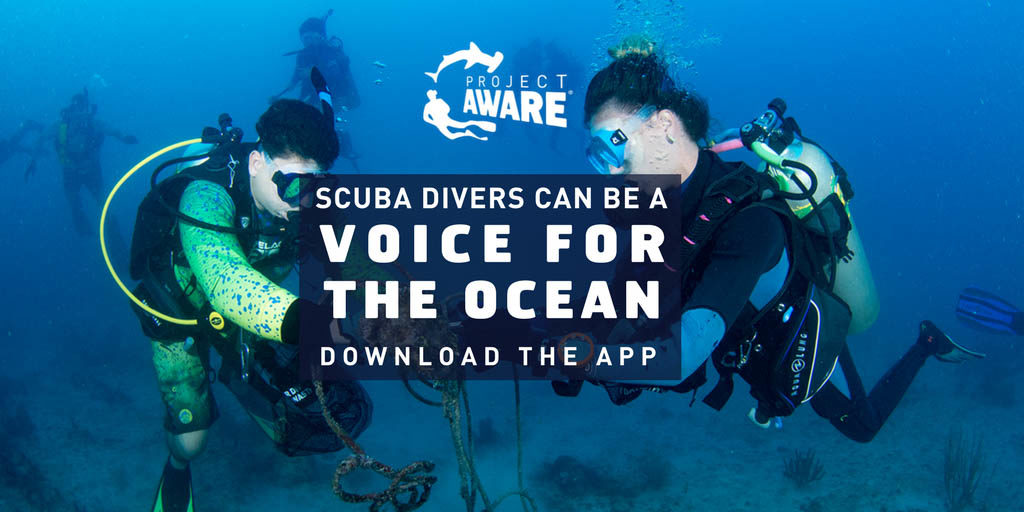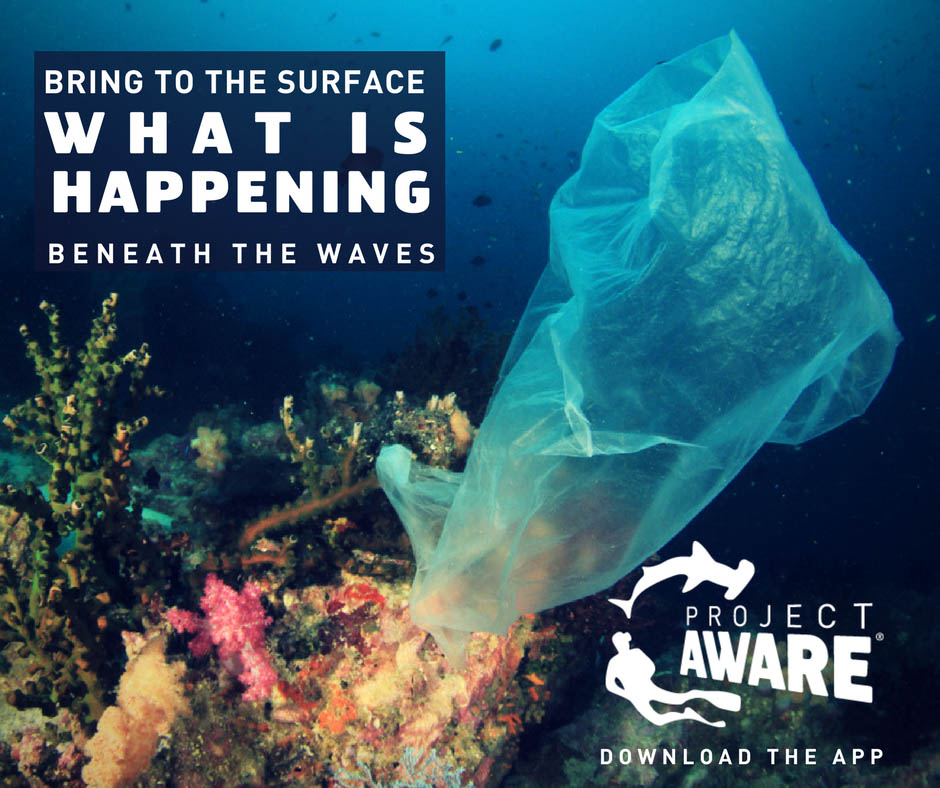A smartphone app from the environmental organization Project AWARE® will enable scuba divers around the world to record levels of marine debris now causing increasing problems for wildlife and ocean habitats.
The app is designed to make it easier for scuba divers to register information on the man-made debris they encounter on their dives, building a dataset shared with science and conservation bodies.
The app includes a list of common debris items and uses geo-location for quick and easy reporting.
Project AWARE developed the mobile app to support the data submission process for its global underwater marine debris survey Dive Against Debris®, which began in 2011 in an attempt to map the extent of the underwater problem.
Marine debris is defined to include any anthropogenic, manufactured, or processed solid material discarded or washed into the sea. Awareness of the problem of plastic and other pollution of the ocean has risen sharply in recent years, with litter being ingested by marine mammals and seabirds and microplastics now traced in the remotest seas including the deep waters of the Arctic.
Divers are increasingly in the vanguard of the so-called ‘citizen scientist’ movement working alongside academic bodies to map the scale and extent of marine litter and help governments meet the objectives of the Global Partnership on Marine Litter, which builds on the 2011 Honolulu Strategy and seeks to protect human health and the global environment by the reduction and management of marine debris.
Danna Moore, Project AWARE’s Director, Global Operations, “For many people, marine debris is a problem that’s out-of-sight, out-of-mind once it enters the marine environment. This is mainly because 70 percent of marine debris that enters the ocean sinks to the seafloor. That’s why scuba divers are so critical to this movement – they have the unique ability to bring to the surface what’s going on beneath the waves. This app is going to make a huge difference in gathering critically-needed data to reveal the extent of the global marine debris crisis for scientists and help conservationists to advocate for change. There is a tide of debris suffocating the ocean. We have to reverse it.”
Key facts about marine debris:
- All seven sea turtle species, over half marine mammal species and almost two-thirds of all seabird species, have been found to have ingested or become entangled in marine debris.
- In 2016 alone, divers reported 1,624 entangled marine animals during Dive Against Debris®
- More than 500 marine and coastal species are affected by ingestion of, or entanglement in, marine debris, which includes the effects of ghost fishing (Source: Marine Debris: Understanding, Preventing and Mitigating the Significant Adverse Impacts on Marine and Coastal Biodiversity. Technical Series No.83. Secretariat of the Convention on Biological Diversity, Montreal.)
- Abandoned, lost or otherwise discarded fishing gear (known as ‘ghost gear’) in the oceans contributes around 10 percent of global marine litter. (Source UNEP Regional Seas Reports and Studies, No. 185; FAO Fisheries and Aquaculture Technical Paper, No. 523. Rome, UNEP/FAO. 2009.)
- Globally annual plastic production has boomed from 1.7 million tons in 1950 to almost 300 million tons today. (Source: PlasticsEurope 2014. Plastics – The Facts 2014: An Analysis of European Plastics Production, Demand and Waste Data)
Project AWARE works with organizations and marine debris fora like the Global Ghost Gear Initiative, focused on lost or abandoned fishing gear, and Trash Free Seas® Alliance , to establish solutions to stop marine debris at its source.
How the App works:
- After the dive, divers simply report all the debris items removed along with the dive conditions and any photos.
- The dive site’s latitude and longitude can be easily added using information from the mobile device.
- No data connection? No problem. The app will store divers’ data as a draft for submission once connection is resumed.
- Data becomes part of a global dataset to help drive long-term change and address the global marine debris crisis.
- Through the App, divers are also encouraged to report debris free dive sites.
The free Dive Against Debris® App is available now for iOS and Android devices from the App Store or Google Play.







